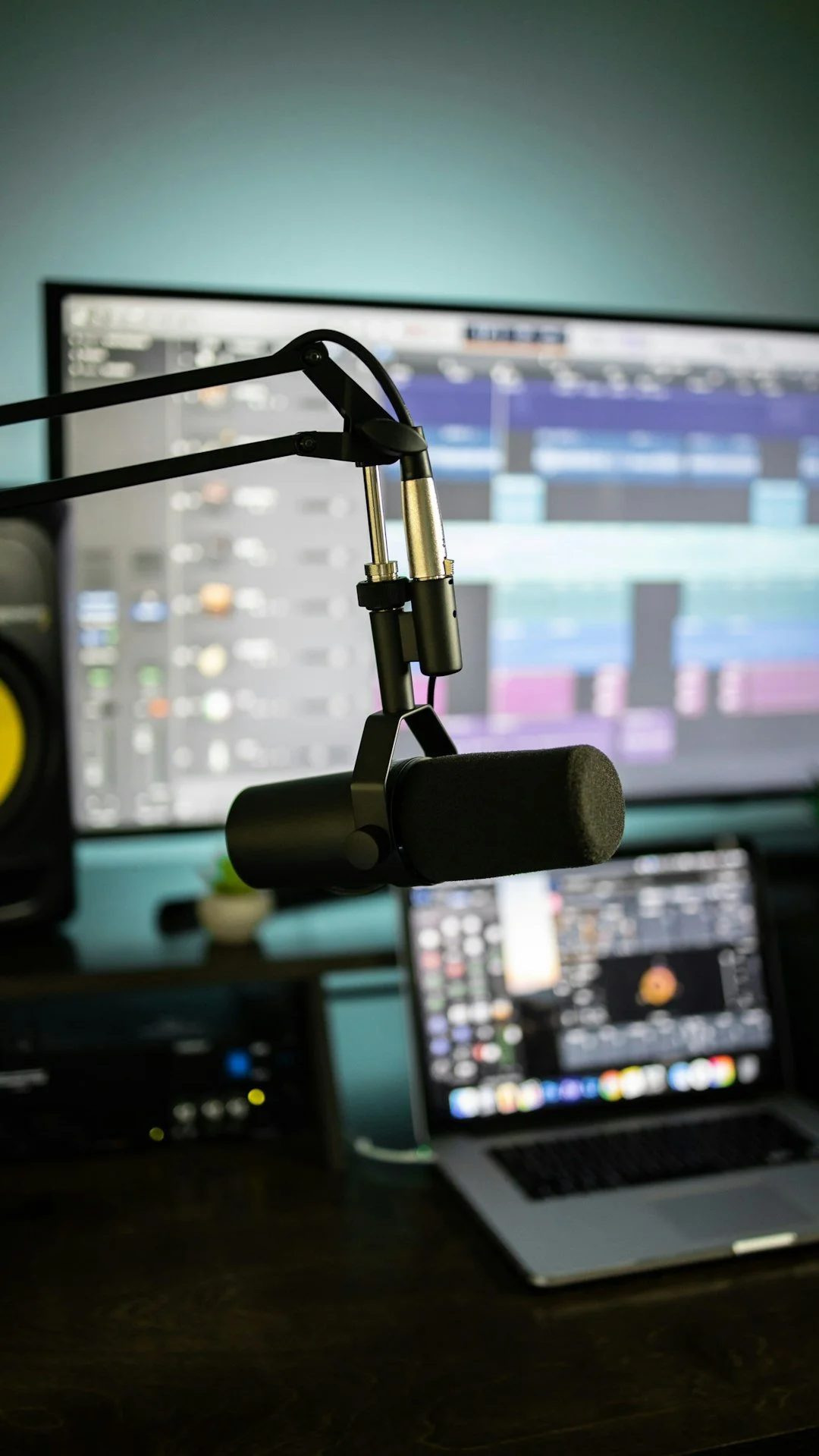Rescissions vote aims to finalize cuts to NPR, PBS; endanger public journalism
Photo: Elijah Merrill via Unsplash.com.
Reading about the House’s vote to kill funding for public broadcasting makes me sick to my stomach. The measure passed by just two votes, 214 to 212.
As someone who relies on public radio every single day, I can’t overstate how devastating this feels.
My mornings start with NPR’s Morning Edition on WBEZ. I’m not greeted by shouting or fake drama. Instead, I get thoughtful reporting that treats complicated issues with care.
At noon, I tune into Reset with Sasha Ann Simons for local news that goes deeper than anywhere else in Chicago.
My evenings end with Marketplace, where I get economics news without all the breathless hype of cable TV.
This isn’t just background noise for me. It’s how I stay informed as a citizen.
Stories that matter to me
What makes public radio special is how it serves communities that other media ignores.
Sasha Ann Simons brings me stories about Pacific Islanders like me. She covers Native Hawaiian culture that shaped my childhood. She reports on Filipino American history that connects me to my ancestors.
When she covers LGBTQ newsmakers explaining issues that affect me as a gay man, she does it with real depth.
These aren’t token diversity stories. They’re essential parts of the American experience that commercial media rarely bothers with.
Rural America needs public radio
The Rescissions Act of 2025 wants to cut $1.1 billion from public media funding. But the real victims won’t be NPR headquarters. They’ll be the rural communities I drive through in Illinois and Wisconsin.
Read: https://www.nytimes.com/2025/07/14/business/media/public-broadcasters-federal-funding.html
In these places, public radio is often the only source of local news for hundreds of miles. It’s also their emergency communication system.
West Virginia has the highest dependence on federal funding for public broadcasters, followed by Alaska, New Mexico, and Montana.
These communities will lose their main news source.
The “bias” claim is wrong
Critics call public broadcasting “biased media.” This completely misses the point.
A Pew Research survey found that 43% of Americans want to keep funding NPR and PBS. Only 24% want to cut it.
What I hear on public radio is exactly what’s missing from commercial media: real commitment to showing multiple sides without the fake drama that sells ads.
Yes, NPR interviews Democrats. But they also regularly feature Republicans, conservative experts, and voices from across the political spectrum.
The difference is they do it without the manufactured conflict that commercial networks use to keep viewers watching between pharmaceutical ads.
Why Republicans really hate public media
Republicans don’t actually hate public radio because of bias. They hate it because public broadcasters refuse to play games. They won’t back down when politicians disagree with their coverage, like what happened at ABC News with Terry Moran’s firing.
Public broadcasters answer to their mission of serving the public, not to partisan pressure or corporate stockholders.
The numbers don’t lie
Federal funding for public broadcasting costs less than one-hundredth of a percent of the federal budget.
We’re talking about $535 million total.
For comparison, that’s roughly what the Pentagon spends in a few hours.
Polls show that NPR and PBS are among the most trusted media institutions in America.
We’re targeting institutions that Americans actually trust, precisely because they’ve earned that trust through decades of independent reporting.
What we’ll lose
What keeps me up at night is imagining America without these voices.
Where will I hear stories about Pacific Islander communities dealing with climate change?
Who will cover Wisconsin farmers with the depth they deserve?
What commercial outlet will explain complex policies without turning them into partisan talking points?
The people pushing these cuts call it “eliminating wasteful spending.” But they’re actually destroying one of the few places left for independent voices in American media.
More than just news
Public radio isn’t just about news.
OPB and other public stations run the Emergency Alert System that saves lives during disasters.
This infrastructure keeps communities connected when they need it most.
When natural disasters hit, when emergencies happen, when people need reliable information, public broadcasting provides the steady, trusted voice that commercial media can’t offer.
Commercial media has to worry about profits and ratings. Public radio just has to worry about serving the public.
Fight for democracy
Public radio and public media are necessary for democracy because they’re truly independent.
In a media world where everyone else answers to advertisers, shareholders, or political parties, public broadcasting proves another way is possible.
As the Senate considers this harmful bill, I’m reminded that we’re not just fighting for money or institutions.
We’re fighting for the idea that in a democracy, people deserve information that isn’t filtered through commercial or partisan interests.
We’re fighting for communities whose stories will disappear if these voices are silenced.
We’re fighting for the principle that some things, like truth, like independent journalism, like serving the public good, are worth keeping even when they don’t make money.
The real choice
This isn’t really about federal spending or media bias. It’s about what kind of country we want to be.
Do we want one where diverse voices and independent journalism can survive?
Or do we want one where only the loudest, most profitable, most partisan voices make it?
For me and millions of Americans who depend on public broadcasting, this feels like life or death.
Public radio has been the soundtrack to my life as an informed citizen.
I refuse to let it be silenced by people who mistake independence for bias and truth-telling for partisanship.
The voices of Pacific Islanders, rural farmers, LGBTQ Americans, and countless other communities hang in the balance.
These are the stories that make America whole. Without public broadcasting, they’ll simply disappear.

